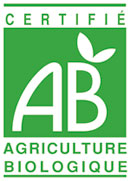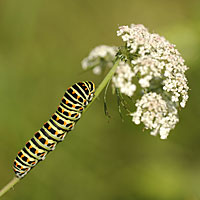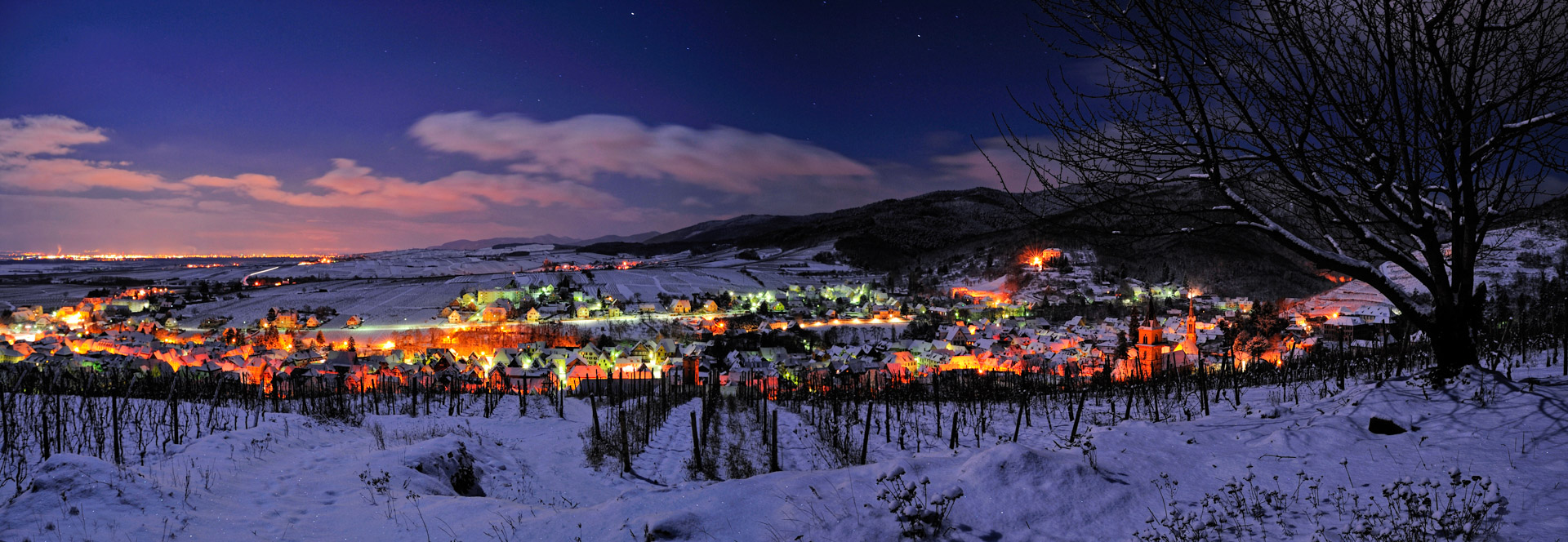Organic farming
Why did we move to organic farming?
 We decided in 2005 to convert our vineyard entirely to organic production. After the three years of conversion, we are now in a position to propose a range of wine coming from grapes in organic farming certified by ECOCERT.
We decided in 2005 to convert our vineyard entirely to organic production. After the three years of conversion, we are now in a position to propose a range of wine coming from grapes in organic farming certified by ECOCERT.
This decision is in line with the approach we initiated in 2000, as we chose to move to integrated production (under the TYFLO certification) that was also using agricultural methods in respect of environmental and human health aspects. Our house has been certified as from the vintage 2003.
Why this choice?
In our search of quality wines, in our approach of a fine expression of our terroirs, we are convinced that a viticulture that respects the balance between the soil and the plant helps to produce deeper and more structured and sapid wines. This view is shared by other colleagues who are considered among the best wine producers in Alsace.
During the last decades, the wine consumption was subjected to big changes in France as well as all over the world. Today, the wine is no more considered as being part of the daily source of calories for a rural and working hard population but as a product of pleasure and share. More than an alcoholic beverage we consider wine as an element of culture and even of our civilization. Wine feeds the soul and brings well-being. In this approach it seems more and more difficult for us to justify a productive viticulture and an extended use of pesticides. The respect of the product and the men lead us to go back to the essence of viticulture that means to the respect of the earth.
Fond of nature (the hobby of Etienne is nature photography and as an engineer in agronomy, Martine has been conscious of the environmental aspects of agriculture), we are deeply attached to the biodiversity. Even if our vineyards are mainly a monoculture, the decision to keep grass between the rows and around the vines, the ban of pesticides and herbicides help us to go back to a rich biodiversity. Nowadays insects and birds settle again the hillsides whereas they have progressively disappeared from the Alsace plain.
Main principles of organic viticulture
As for all other organic products, the organic viticulture is submitted to an European regulation (RCE 834/2007 et RCE 559/2208) which is common to all the Member States. These rules require to follow a specification and to be regularly controlled by agencies that are agreed by the State. In an agronomical point of view, the fundamental rule for the organic wine producer is “feeding the soil to feed the plant”. In an ethical point of view, one has to work in concern with respect of men and environment.
Working the soil before all : As the use of herbicides is forbidden in organic viticulture, the first step is to go back to a 100% mechanical work of the soil. In 1999, we already decided to plough again the rows and to put them under natural grass. The aim of ploughing is to aerate the roots system, to enhance the microbiological activity and the work of the earthworms in the soils. As our soils are very different each other, the choice of the good material adapted to each situation was an important step in our work.
Grass between the rows: Putting grass in the vineyards consists in maintaining a sewed or natural green carpet between the rows and around the vines. In order to limit the competition between the grass and the vine stocks, we grow grass only on one row over two and we regularly cut this grass. Generally speaking we prefer to let natural grass in our vineyards but in some cases we have sewed a mix of different flowers in order to create an ecosystem favorable to biodiversity.
A controlled fertilization : Under organic management, only organic and some mineral fertilizers (natural chalk, trace elements…) are allowed. With respect of the specification, and depending on the needs of each spot, we use today biodynamic composts and guano.
 Against insects and deseases: Prevention is better than cure ! As curative products are very limited in organic viticulture, our first aim is to maintain the vineyards in a good health with prophylactic measures : first of all we try to control the vigour of the vine, then we work in the vineyards in order to enhance the air circulation between the leaves. Regarding products, we only use those which are allowed by the organic specification. Those products are only contact products in opposition to traditional products which go through the sap of the plant. We limit the more we can the quantities depending on the risks. The main products we need are based on copper (Bordeaux mixture against mildew) and on sulphur (against oidium disease) and we develop the use of powders of horsetail or nettle. Against the grape worm, since several years, we have adopted a method of sexual confusion shared by all the producers in Ribeauvillé. The principle of this method consist in saturating the atmosphere of the vineyards with pheromones (chemical substances that are naturally emitted by the female insects to attract the males) in order to prevent the mating and the eggs laying.
Against insects and deseases: Prevention is better than cure ! As curative products are very limited in organic viticulture, our first aim is to maintain the vineyards in a good health with prophylactic measures : first of all we try to control the vigour of the vine, then we work in the vineyards in order to enhance the air circulation between the leaves. Regarding products, we only use those which are allowed by the organic specification. Those products are only contact products in opposition to traditional products which go through the sap of the plant. We limit the more we can the quantities depending on the risks. The main products we need are based on copper (Bordeaux mixture against mildew) and on sulphur (against oidium disease) and we develop the use of powders of horsetail or nettle. Against the grape worm, since several years, we have adopted a method of sexual confusion shared by all the producers in Ribeauvillé. The principle of this method consist in saturating the atmosphere of the vineyards with pheromones (chemical substances that are naturally emitted by the female insects to attract the males) in order to prevent the mating and the eggs laying.
All these practices lead to a good balance between soil and vine stocks in our vineyards. In the last years, the grapes we harvested were excellent and we feel that the berries become more resistant to the huge climatic variations we know those days.
And the wine?
Since the vintage 2012 Organic Wines exist on a legal point of view. A specification at the European Union level has been introduced. As the whole cycle from the vines to the bottle is now cobered, we can speak about Organic Wines.

